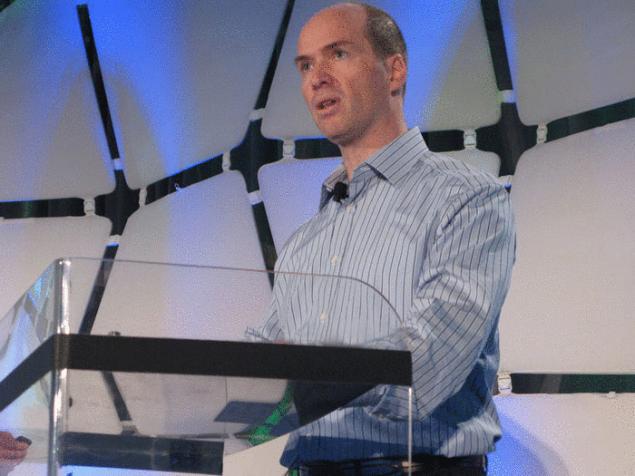409
Ben Horowitz: The Self-Deception. How to detect and how to stop
Partner of venture Fund Andreessen Horowitz, Ben Horowitz created and successfully sold several large companies and runs a popular blog on leadership. In this post, he strongly reveals that top managers who are afraid to admit the truth.

When the company starts to lose a major battle, the first casualty is often the truth. Leaders and staff constantly invent creative stories, allowing them to avoid a collision with obvious facts. Despite their creative efforts, many companies eventually give the same false explanations.
Some examples of lies, "She's gone, but we were going to fire her or demote". Technology companies tend to divide the outgoing employees into three groups:
1) those who are retired;
2) those who have been fired;
3) those who quit, so be it, anyway we don't need them.
And surprisingly, as soon as the company has problems, the third category immediately growing rapidly. In addition, the sudden wave of staff departures "due to the low efficiency" characteristic of companies that claim that they have very high standards when hiring.
How come that these employees are superstars suddenly turned into a sucky employees? "We would have won, but the other guys are dumping". "The customer chose us and believes that we are more competent company, but our competitor gave their product practically for free. We would never have agreed to such a low price, it's a blow to the reputation".
Anyone who ran the sales Department, heard the lie. You go to the client, you fight, you lose. A sales Manager who doesn't want to draw attention to their shortcomings, in the report boss blames Manager of another company, which "sold a customer a used product." Top Manager, not wanting to think that his product becomes uncompetitive, believe his employee. If you hear a lie, try to double-check this statement in a conversation with the client.
I assure you, you will hear something quite different. "We missed intermediate deadlines, but this does not mean that we do not have time to make the product in time". At the meeting the developer when it is very important to deliver the product on time, has a contract with the client, depends on the end of the quarter, depends on the competitiveness of the company, — everybody wants to hear good news. When the facts don't correspond to the good news, the smart Manager will find the words that'll be easier — but only until the next meeting.
"We have a very high rate of customer churn, but as soon as we spread our customer base e-mail marketing, they will come." Well, Yes, of course. People leave our service and most do not use it because we send them too little spam. Yeah, I think so too.
Where does the lie?
To answer this question, I remembered a long conversation with the incomparable head of Intel, Andy Grove. At the end of the Great Internet bubble in 2001, when a major high-tech companies have started to lag behind its quarterly plans, I wondered why none of them didn't see this coming? One would assume that after the dotcom collapse in April 2000, companies like Cisco, Siebel, and HP realize that they will soon have a slowdown in business because many of their clients ran into a dead end. But despite the large-scale and public warning in history, every leader has stated consistently high expectations until the moment when their quarterly results began to fly into the pipe.
I asked Andy why these great leaders were lying about the impending disaster. He replied that they didn't lie to investors and to themselves. Andy explained that humans, especially those who makes something, listen only to the indicators, testifying to the good news.
For example, if a CEO hears that the sale of his app has rose further to 25%, he will rush to hire new developers to be able to cope with the impending avalanche of demand.
On the other hand, if he hears about the decline of interest by 25%, it is as quickly and forcefully dismiss this news:
"This month our website was slow, then had four days off, we changed the user interface, hence all the problems. For God's sake, to panic, then why?"
Both figures may be incorrect or may be correct, but our hypothetical head — and in General almost any leader — taking action only after a positive indicator, and when faced with negative, looking for alternative explanations.
So if you're reading this and it all sounds familiar and you are wondering why your honest employees are lying to you, the answer is: they don't lie. They're lying to themselves. And if you believe them, you are lying to yourself.published
P. S. And remember, just changing your mind — together we change the world! ©
Source: ideanomics.ru/?p=174

When the company starts to lose a major battle, the first casualty is often the truth. Leaders and staff constantly invent creative stories, allowing them to avoid a collision with obvious facts. Despite their creative efforts, many companies eventually give the same false explanations.
Some examples of lies, "She's gone, but we were going to fire her or demote". Technology companies tend to divide the outgoing employees into three groups:
1) those who are retired;
2) those who have been fired;
3) those who quit, so be it, anyway we don't need them.
And surprisingly, as soon as the company has problems, the third category immediately growing rapidly. In addition, the sudden wave of staff departures "due to the low efficiency" characteristic of companies that claim that they have very high standards when hiring.
How come that these employees are superstars suddenly turned into a sucky employees? "We would have won, but the other guys are dumping". "The customer chose us and believes that we are more competent company, but our competitor gave their product practically for free. We would never have agreed to such a low price, it's a blow to the reputation".
Anyone who ran the sales Department, heard the lie. You go to the client, you fight, you lose. A sales Manager who doesn't want to draw attention to their shortcomings, in the report boss blames Manager of another company, which "sold a customer a used product." Top Manager, not wanting to think that his product becomes uncompetitive, believe his employee. If you hear a lie, try to double-check this statement in a conversation with the client.
I assure you, you will hear something quite different. "We missed intermediate deadlines, but this does not mean that we do not have time to make the product in time". At the meeting the developer when it is very important to deliver the product on time, has a contract with the client, depends on the end of the quarter, depends on the competitiveness of the company, — everybody wants to hear good news. When the facts don't correspond to the good news, the smart Manager will find the words that'll be easier — but only until the next meeting.
"We have a very high rate of customer churn, but as soon as we spread our customer base e-mail marketing, they will come." Well, Yes, of course. People leave our service and most do not use it because we send them too little spam. Yeah, I think so too.
Where does the lie?
To answer this question, I remembered a long conversation with the incomparable head of Intel, Andy Grove. At the end of the Great Internet bubble in 2001, when a major high-tech companies have started to lag behind its quarterly plans, I wondered why none of them didn't see this coming? One would assume that after the dotcom collapse in April 2000, companies like Cisco, Siebel, and HP realize that they will soon have a slowdown in business because many of their clients ran into a dead end. But despite the large-scale and public warning in history, every leader has stated consistently high expectations until the moment when their quarterly results began to fly into the pipe.
I asked Andy why these great leaders were lying about the impending disaster. He replied that they didn't lie to investors and to themselves. Andy explained that humans, especially those who makes something, listen only to the indicators, testifying to the good news.
For example, if a CEO hears that the sale of his app has rose further to 25%, he will rush to hire new developers to be able to cope with the impending avalanche of demand.
On the other hand, if he hears about the decline of interest by 25%, it is as quickly and forcefully dismiss this news:
"This month our website was slow, then had four days off, we changed the user interface, hence all the problems. For God's sake, to panic, then why?"
Both figures may be incorrect or may be correct, but our hypothetical head — and in General almost any leader — taking action only after a positive indicator, and when faced with negative, looking for alternative explanations.
So if you're reading this and it all sounds familiar and you are wondering why your honest employees are lying to you, the answer is: they don't lie. They're lying to themselves. And if you believe them, you are lying to yourself.published
P. S. And remember, just changing your mind — together we change the world! ©
Source: ideanomics.ru/?p=174























